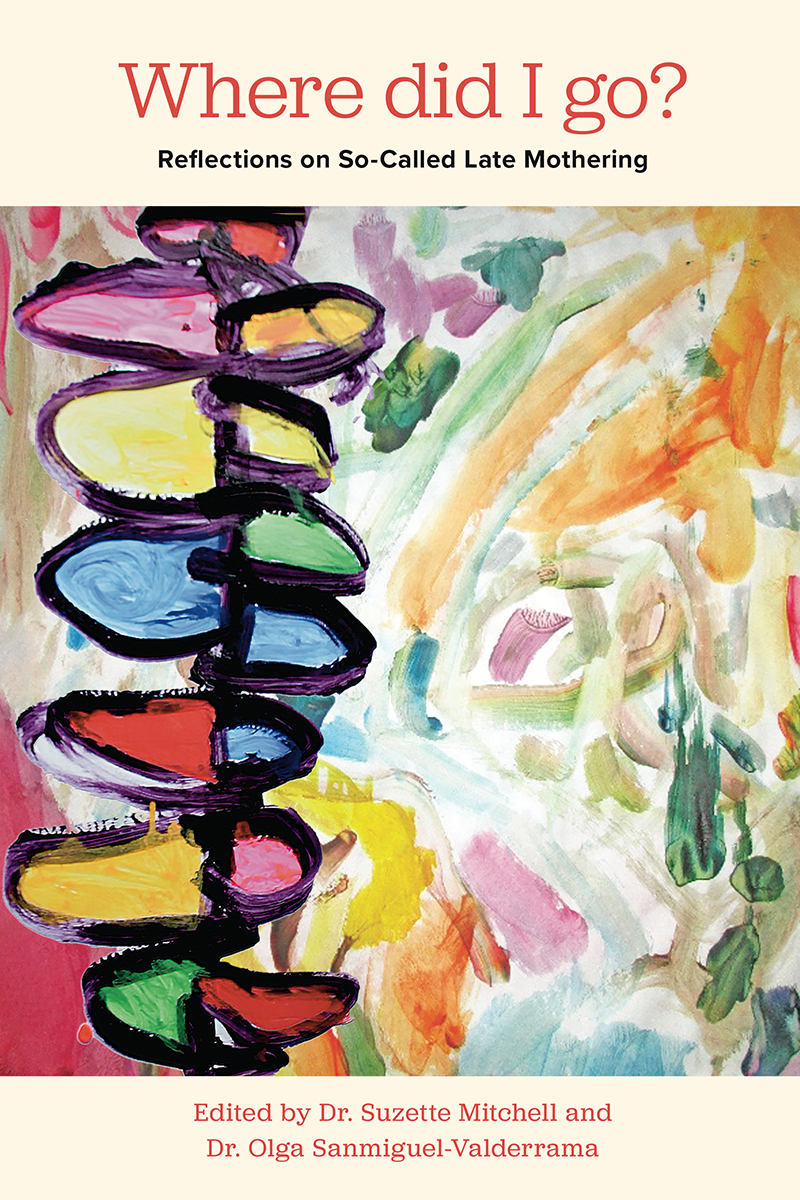
Price: $39.95
Page Count: 256
Publication Date: October 2022
ISBN: 978-1-77258-407-3
In this collection the co-editors have compiled riveting essays on the under-theorized topic of mothering later in life. More specifically, this text includes a diversity of perspectives and voices from authors who are engaged in so-called late mothering practices and simultaneously managing demanding careers. I appreciate the insights that are amassed in this anthology and how I, as the reader, am invited to delve more deeply into our stories and experiences, both personal and universal. The stories–an extensive blend of narrative styles–are timely, authentic, and encourage us to embrace a fuller consideration of what mothering is and can be. They are also provocative and challenge our understandings of what it means to engage in practices of so-called late mothering (or become first-time mothers later in life) in contemporary times.
-- KATHY MANTAS, Professor, Schulich School of Education, Nipissing University, and co-editor of Middle Grounds: Essays on Midlife Mothering.
This collection of "so-called" late mothering stories is a balm for those who were marked medically as "geriatric" in their pregnancies and are looking to find information and stories to reflect their journeys as mothers. Come for the universal mothering stories; stay for the fascinating details that make each mother's story her own. This collection adds to our knowledge in many areas; an important read for mother scholars.
-- Nicole L. Willey, Professor of English, Kent State University Tuscarawas
The auto-ethnographies or maternographies included in this thoughtful collection provide deeply personal and unadorned insights into the experiences of ‘older’ mothers. This book demonstrates the need for more scholarly attention to be paid to this new demographic of professional, high-achieving women who can become stigmatized by the label of ‘late mothers’ once they have a child. Each contribution poses challenges to our understanding of the intimate, lived experience of mothering, regardless of age. These narratives work together to contest the outmoded language used in public discourses about older mothers and to resist the idea that there is a homogeneity among mothers based on age. This is a book that contributes to gender studies, sociology, feminist auto-ethnography and to the maternal studies literature. It is also written in an accessible and inclusive way for a diverse general readership.
-- JULIE STEPHENS, Associate Professor, Victoria University, Australia, and author of Confronting Postmaternal Thinking: Feminism, Memory and Care.
Acknowledgments
3
Preface
5
Introduction
Identity Shifts and Ageism: So-Called Late Mothering in the Twenty-First Century
Olga Sanmiguel-Valderrama and Suzette Mitchell
13
1.
Working in Balance: Being Kwe and an Anishinaabe Mother in the Workplace
Renee E. Mzinegiizhigo-kwe Bedard
27
2.
Older, Professional Mothers: Identity and Disability
Gretchen A. Good, Anita Gibbs, and Awhina Hollis English
53
3.
Flying Solo in the Age of Neoliberalism:
A Narrative on Migration, Security, and Social Reproduction Olga Sanmiguel-Valderrama
65
4.
You Can’t Do Fieldwork with a Baby
Laura Beckwith
83
5.
The Line That Separates Us
Simal Ozen Irmak
93
6.
Letters to My Sons
Jean D’Cunha
103
7.
Like a Deer in Headlights
Katharine Gelber (with an afterword by Lou Stanley)
117
8.
Does Your Husband Have a Screwdriver?
One Woman’s Journey through the Heteronormative Vortex Jill White
127
9.
Planet Motherhood
Suzette Mitchell
139
10.
Shock of the New: Birth Trauma, Postnatal Depression, and Being Older Caro White
159
11.
Making a Life
Constance Morrill
173
12.
Late Motherhood: Working As If One Has Children, Mothering As If One Has a Job
Karen Christopher
185
13.
The Perils and Pleasures of a Peerless Life: Identity Changes in Midlife Motherhood Elizabeth Allison
199
14.
It Is Revealing Itself: An Examination of the Identity Challenges of Late Motherhood for the Professional Woman Maura J. Mills
211
15.
Shrugging Off the Mental Load: Resisting the Roles of the Good Wife and Mother Caroline J. Smith
219
16.
Confronting Taboos at the Intersection of Motherhood, Age, and Gender: Confessions of a Near-Geriatric Tiger Mom Lisa K. Hanasono
231
Notes on Contributors
243
Suzette Mitchell, PhD, is an Associate with Gender At Work. Originally from Australia, she was forty-two when she had her daughter Veronika in Hanoi, Vietnam. She was running a United Nations agency during the birth and first four years of her daughter’s life. She returned to Melbourne, Australia, when her daughter was eight, continuing to consult for the UN and the Asian Development Bank in international development for women. Her PhD was on the impact of the United Nations Fourth World Conference on Women and was conducted in the Department of Women’s Studies and Political Science at the Australian National University.
Olga Sanmiguel-Valderrama, originally from Colombia, was 46 y.o. when she had her first and only child, Ana Patricia. She earned her graduate degrees in Canada and currently is an Associate Professor in Women’s, Gender and Sexuality Studies at the University of Cincinnati in the USA. Dr. Olga Sanmiguel-Valderrama is also the founder Director of the newly established “The Americas, Indigenous, and Latinx Research Center” at the University of Cincinnati. She has published extensively on women workers rights in agribusinesses in Latin America and on the rights of Latinx immigrants in the USA. Her latest coedited volume Global Women's Work Perspectives on Gender and Work in the Global Economy coedited with Beth English and Mary E. Frederickson was published in late 2018. Until recently, Dr. Sanmiguel-Valderrama directed UC’s Latin American Studies Program, transforming it from a certificate on “Latin America” to a BA on “Latin American, Caribbean, and Latinx Studies.” She is also the founding director of the Social Justice Certificate. Currently, she is working on a monograph on Latinx rights in the USA. Her scholarly interest is to expand the research and teaching on the unique histories and contributions of the Latinx diverse communities to the USA’s development.


